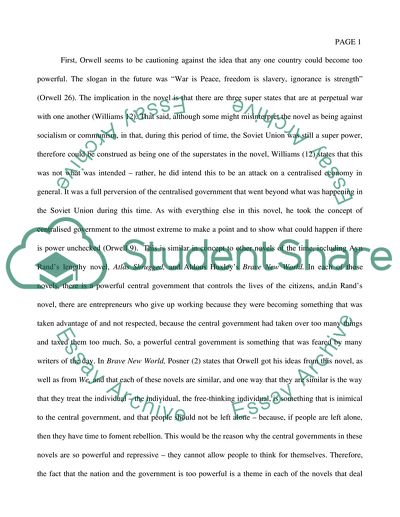Cite this document
(“How is the Future portrayed in the novels, WE by Zamyatin and 1984 by Research Paper”, n.d.)
How is the Future portrayed in the novels, WE by Zamyatin and 1984 by Research Paper. Retrieved from https://studentshare.org/english/1623802-how-is-the-future-portrayed-in-the-novels-we-by-zamyatin-and-1984-by-orwell-and-what-do-the-authors-warn-us-against
How is the Future portrayed in the novels, WE by Zamyatin and 1984 by Research Paper. Retrieved from https://studentshare.org/english/1623802-how-is-the-future-portrayed-in-the-novels-we-by-zamyatin-and-1984-by-orwell-and-what-do-the-authors-warn-us-against
(How Is the Future Portrayed in the Novels, WE by Zamyatin and 1984 by Research Paper)
How Is the Future Portrayed in the Novels, WE by Zamyatin and 1984 by Research Paper. https://studentshare.org/english/1623802-how-is-the-future-portrayed-in-the-novels-we-by-zamyatin-and-1984-by-orwell-and-what-do-the-authors-warn-us-against.
How Is the Future Portrayed in the Novels, WE by Zamyatin and 1984 by Research Paper. https://studentshare.org/english/1623802-how-is-the-future-portrayed-in-the-novels-we-by-zamyatin-and-1984-by-orwell-and-what-do-the-authors-warn-us-against.
“How Is the Future Portrayed in the Novels, WE by Zamyatin and 1984 by Research Paper”, n.d. https://studentshare.org/english/1623802-how-is-the-future-portrayed-in-the-novels-we-by-zamyatin-and-1984-by-orwell-and-what-do-the-authors-warn-us-against.


